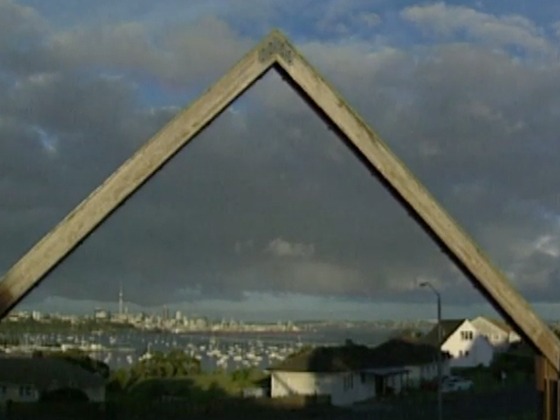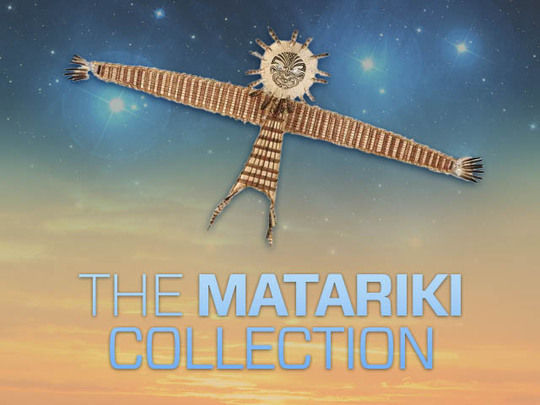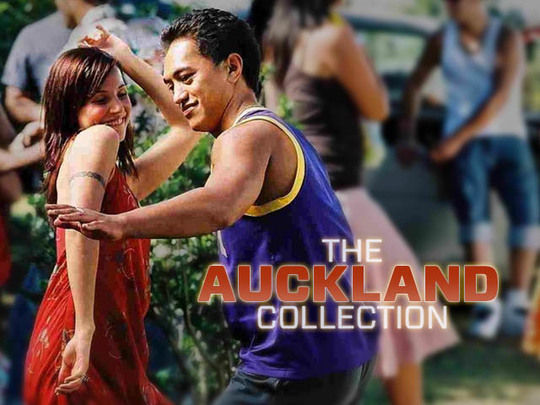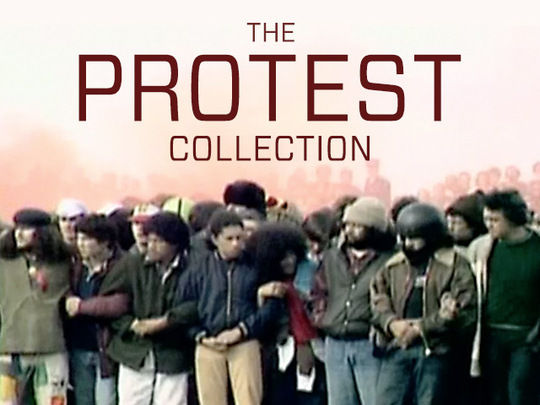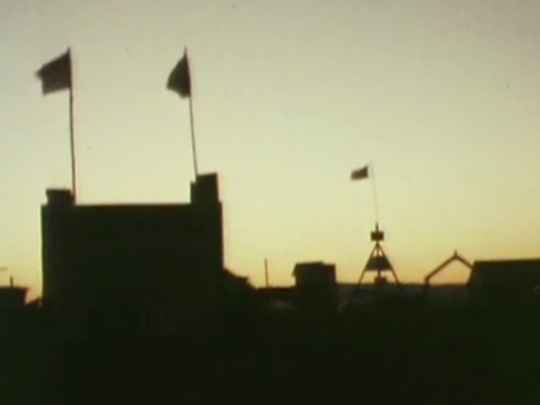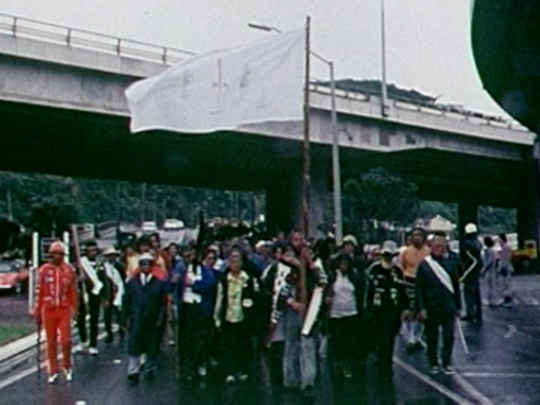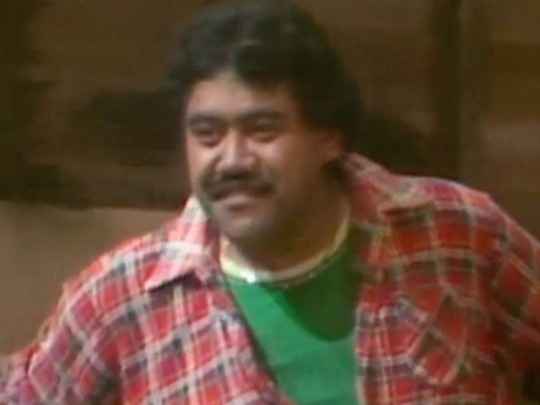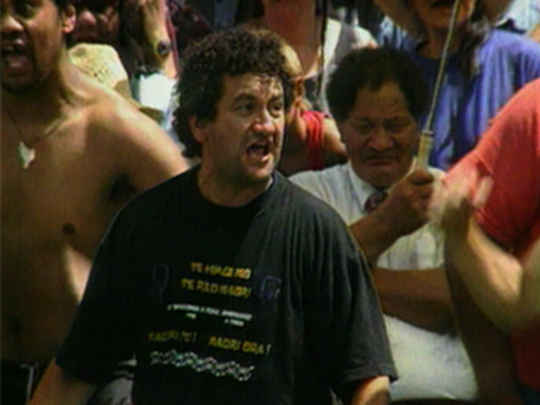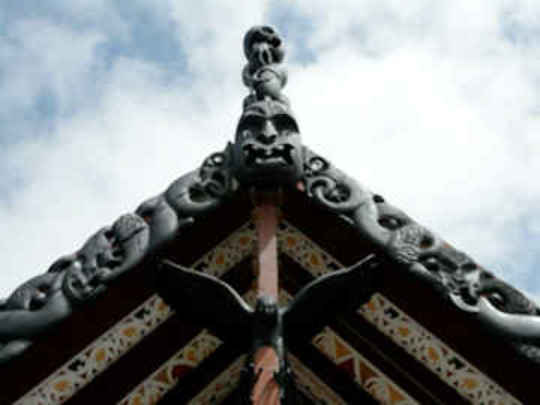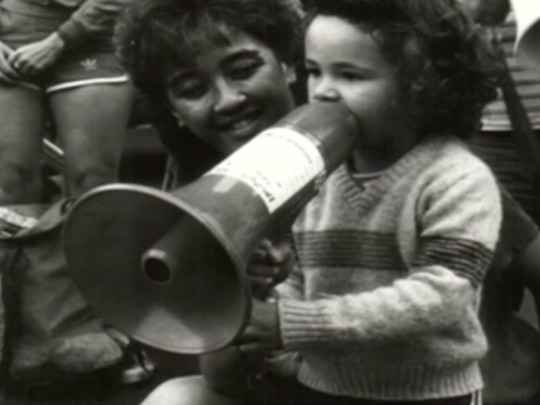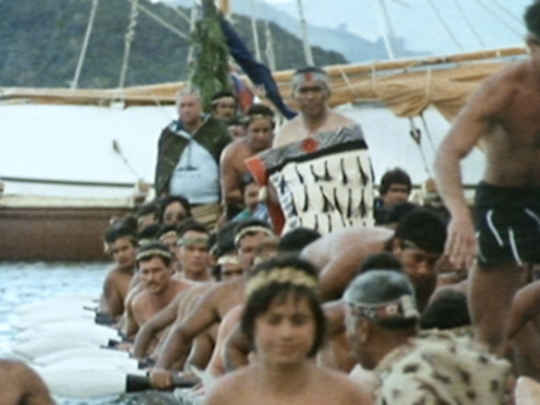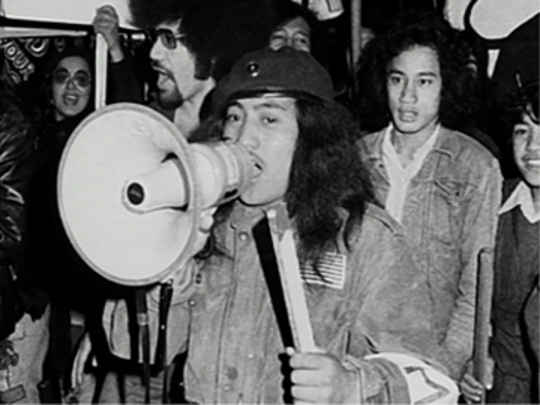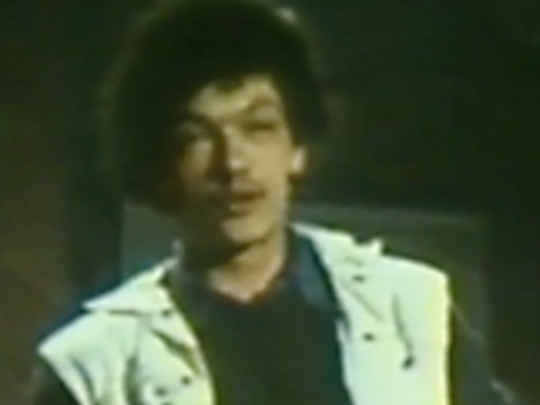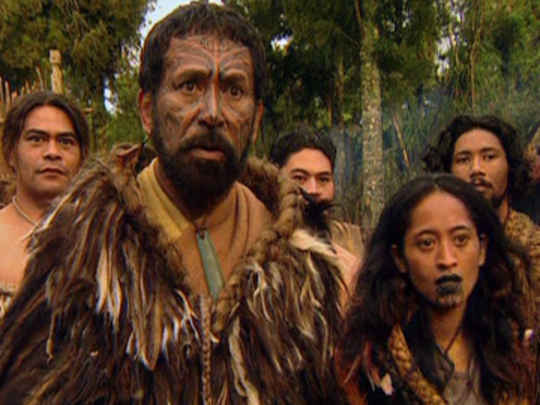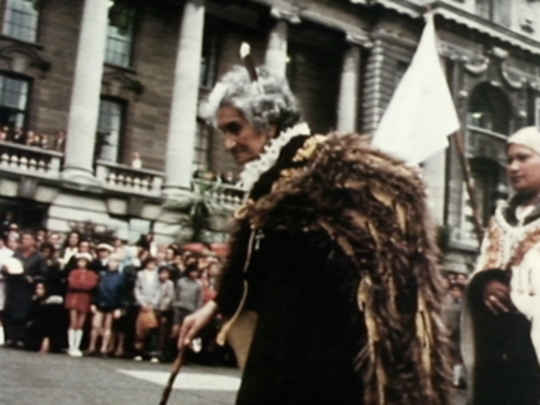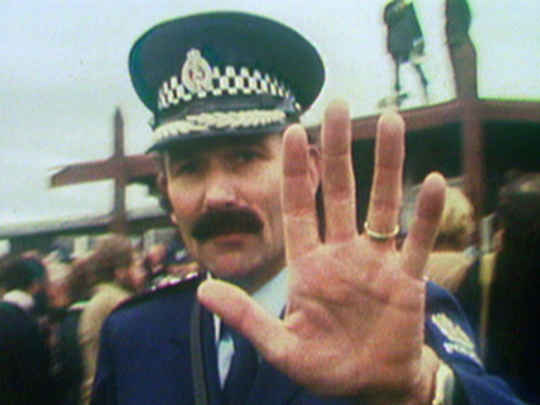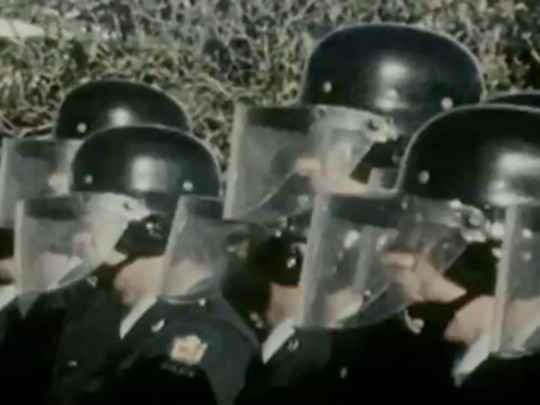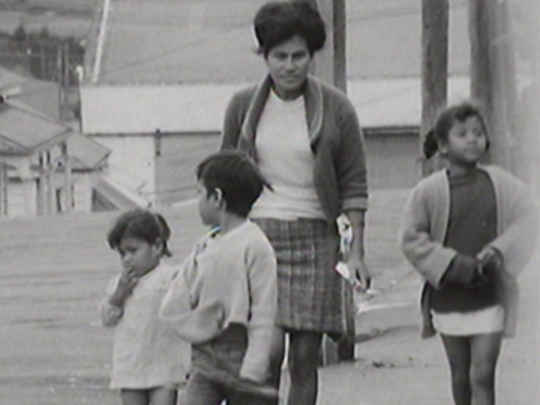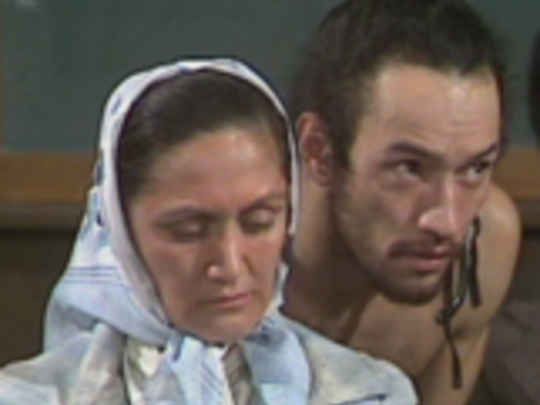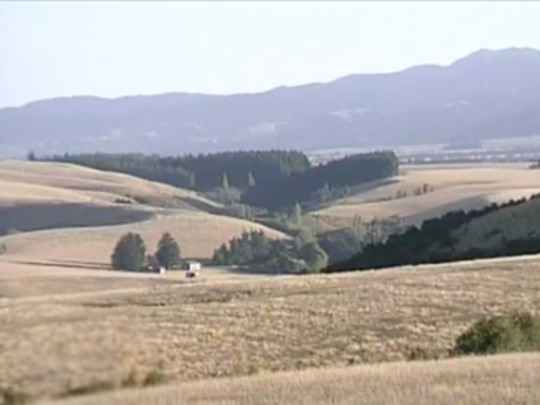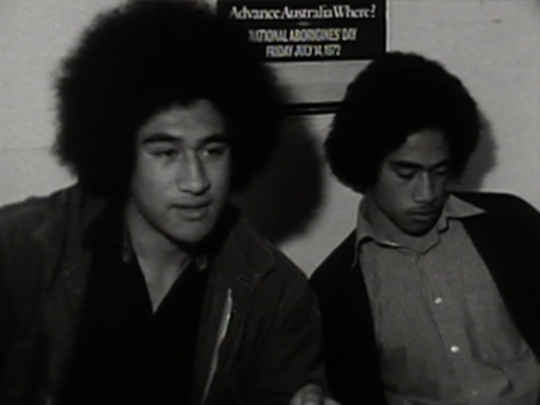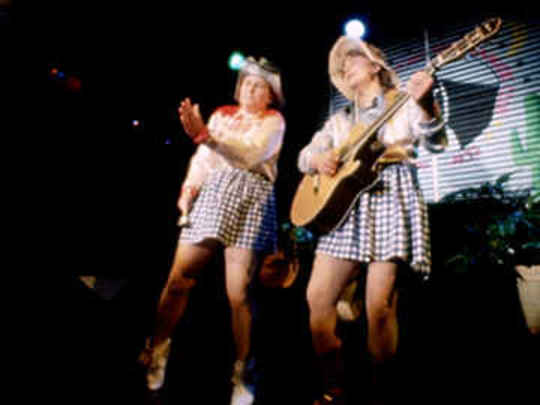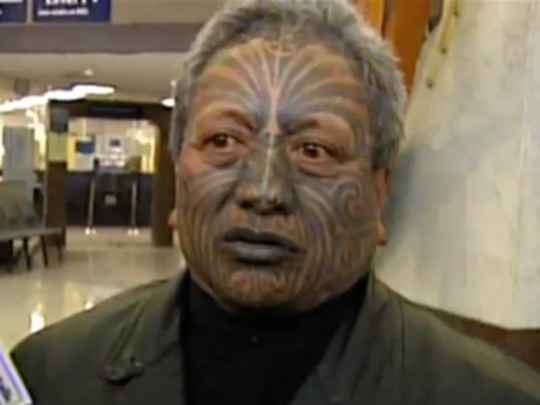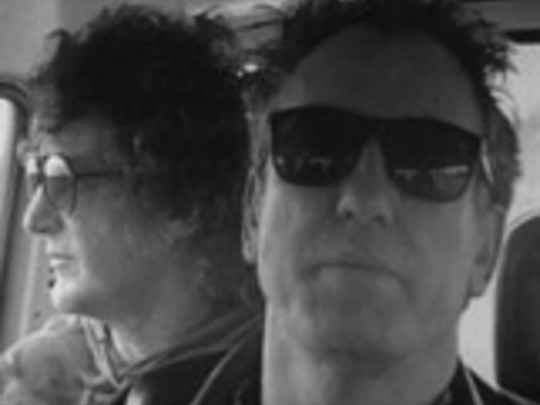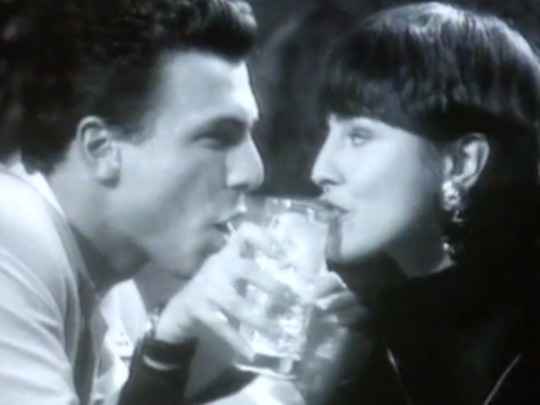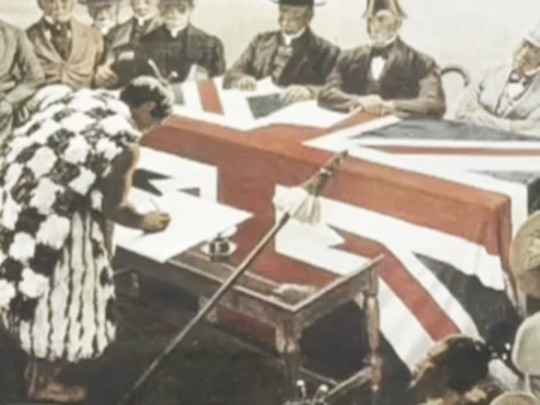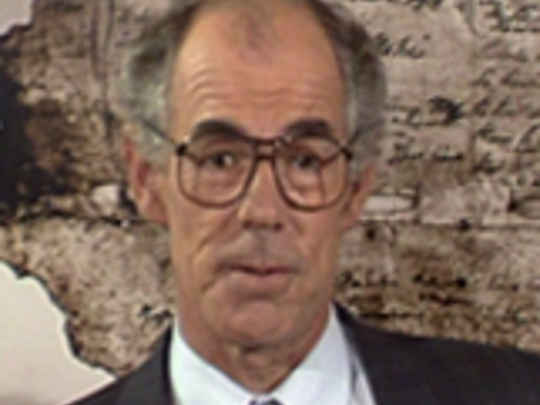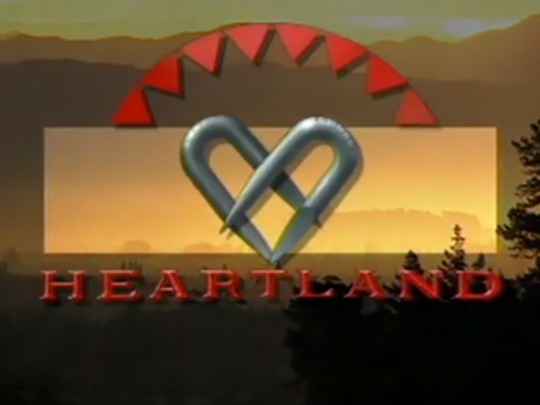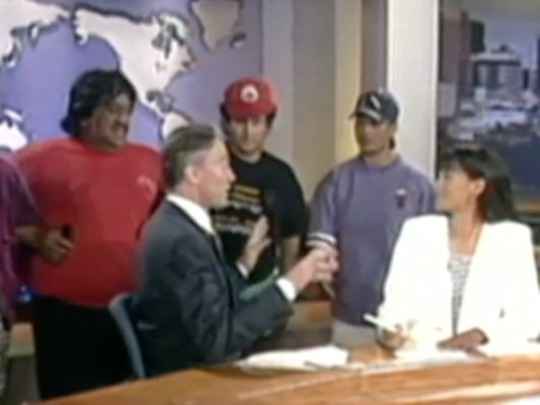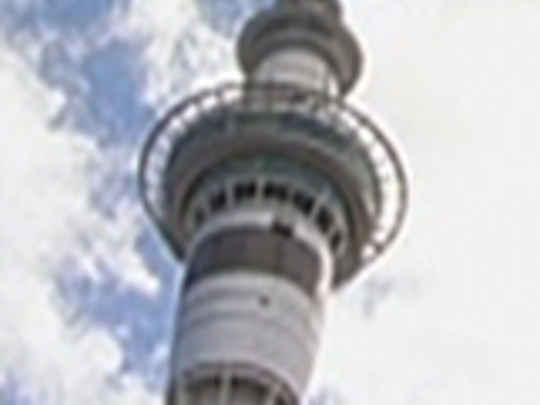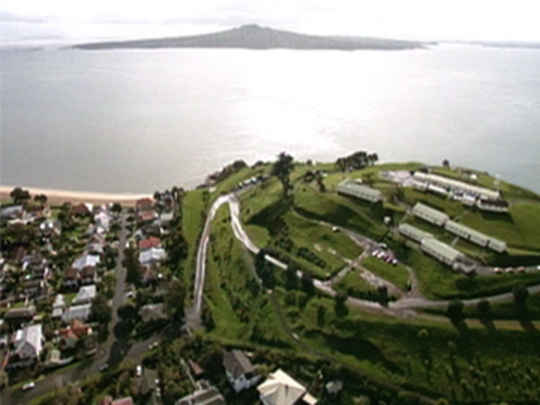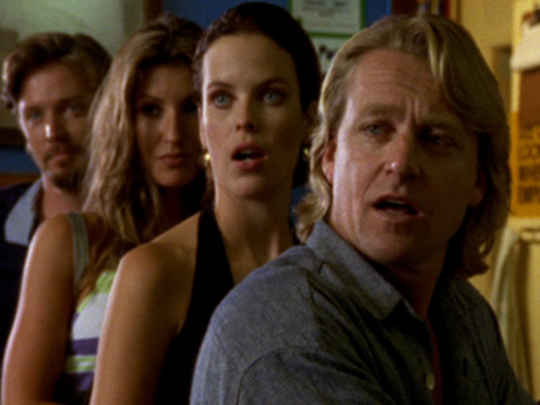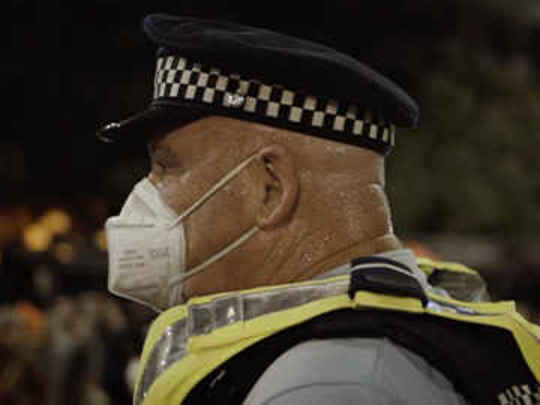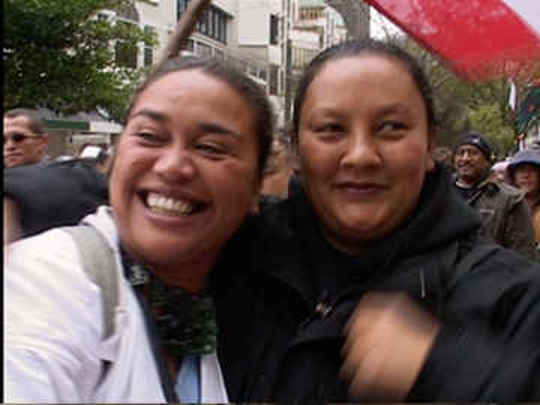Bastion Point - The Untold Story
Television (Full Length) – 1999
We were here for 506 days, before the convoy of militia approached the boundaries of this place. It was such a military overkill, in peacetime. It was so idiotic. It was such a terrible waste of taxpayers funds, because our people were here on our tūrangawaewae, not harming anybody. Perhaps only in the egos of politicians in the National Party...
– Joe Hawke, in clip four
They had no money, the settler government, Britain sent no money whatever. So how do they administer the country? Answer: buy land on the cheap from Māori and on-sell it at a profit. So the Auckland isthmus where Ngāti Whātua Õrākei is, and bought for 200 pounds, 3000 acres. Ninety acres sold within nine months for 24,000 pounds.
– Doug Graham, Minister of Treaty of Waitangi Negotiations talks about early land deals
I looked, and I couldn't believe these buggers were coming out to torch my house . . . They had their piece of paper, and who was gonna be burned out, and who not gonna be burned out. It was just like a military seizure: if you obstruct us, well we'll just push you out of the way.
– Joe Hawke recalls seeing one of the houses torched by the authorities in Christmas 1951, early in clip three
1911, they planned to put a sewage outfall in Ōkahu Bay, when one year earlier the Stout-Ngata Commission declared that this land should remain in Māori ownership forever . . . . our fishing beds were ruined, and every winter from 1912 the village was flooded out.
– Joe Hawke, in clip two
They wouldn't give us any running water inside the village. They wouldn't give us internal sewage in the village. They wouldn't give us permits to rebuild and remodernise our houses.
– Joe Hawke on policies to drive Māori off the land, in clip two
Yeah it still infuriates me. Especially when my mum was born . . . they owned the whole of Auckland, and all they were left with was an urupā. There's gotta be an injustice in that...
– Precious Clark (née Precious Joannee Hawke), early in this documentary
The occupation took us by surprise. We had no warning of it, and the instructions that came through to me following cabinet consideration of the matter was 'get 'em off — just go and get 'em off.'
– George McMillan, former Commissioner of Public Lands at the start of clip four
The land on which the buildings and other property hereabouts stand is crown land. I request and require all such buildings and other property to be demolished and or removed forthwith by persons having an interest in them.
– Commissioner of Public Lands George McMillan addresses those at Bastion Point in May 1978, in clip four
...there were no documents, there were no boundary pegs, there was continuous live buying, until in the end all the land was bought from under Ngāti Whātua's feet.
– Ranginui Walker on how Ngāti Whātua lost their land, in clip two
...the government was intent on making sure that the last remaining Ngāti Whātua were moved, and finally they did it by two actions: one was building some new state houses explicitly for Māori in Kitimoana Street, and the other was using the Public Works Act to compulsorily acquire the remaining bits of Māori land.
– Auckland University professor David Williams, late in clip two
They were booted up the hill to Kitimoana Street. So they became tenants living on their own ancestral land.
– Auckland University professor David Williams on Māori ending up in state houses in Ōrakei, at the end of clip two
The strong message really was, sell up and get out because we don't really want a Māori suburb right in the middle of Auckland.
– Auckland University Associate Professor David Williams
People had learnt to speak; they learnt to do mihi and things, which they'd never got the opportunity to do, because on the marae it's left to the elders. And every young person had a chance to show off — and they did. And they learnt heaps. And it was like one big family.
– Rene Hawke on the occupiers at Bastion Point, in clip four
I was received throughout the whole thing with unfailing courtesy by the Ngāti Whātua leaders, including Joe Hawke. However some of the younger members of the Māori group were fairly abusive. But the worst abuse came from the Pākehā hangers-on, as I saw them — particularly the trade union people with Liverpudlian accents, who proceeded to tell me what terrible things we'd done to the Māori people throughout history...
– Former Commissioner of Public Lands George McMillan
...again the shadowy figure of [Bill] Andersen is behind it. They have no sympathy for the Māori as such; they're using them.
– Prime Minister Rob Muldoon accusing Socialist Unity Party leader Bill Andersen of playing a part in the Bastion Point protests
One wondered at the time whether in fact we needed to be there. Whether it was a bad call or not, we were told to do [it], and what we did we did.
– Former Police Superintendant Pat Gaines
...Sometimes you need people to just get up there and dig the dirt, and be radical . . . people have been taking cases to the courts for years and years and years, and they just did not get resolved.
– Precious Clark (née Precious Joannee Hawke) on the value of protest, late in clip three
[Rob Muldoon] had a strong view that the return to the crown should be maximised from this land, and that meant high cost housing or units of some sort.
– Former Commissioner of Public Lands George McMillan describes Prime Minister Rob Muldoon's views on Bastion Point
...the protesters, led by the elders, commenced singing hymns and prayers. And that was just shattering . . . It was then that one realised that alright, here was something really sacred. There seemed to be a peace came over the place.
– Former Police Superintendent Pat Gaines recalls day 507 of the protest, late in clip four
It took another ten years for the struggle at Bastion Point to be finally over. Most of the 222 protesters arrested that day had the charges of trespass thrown out by the courts. Some nine years later, the Labour Government finally accepted the Waitangi Tribunal's judgement that Bastion Point was indeed Māori land, and should be returned to Ngāti Whātua o Õrākei.
– One of the narrators, at the start of clip five
..the Bastion Point Takaparawhau struggle and its aftermath cost Joe, Rene Hawke and their whānau dearly. Though almost everyone now claims to have always supported Ngāti Whātua, that is not true. Joe was pilloried by many people for many years. After 1978, he was unable to re-establish his business or indeed to obtain any significant employment for many years. He was reviled as a ‘protestor’, not as a ‘protector’ of his hapū land. He was not deterred. He took a leading role in further claims to the Waitangi Tribunal . . . that eventually led to the Ōrākei Act 1991 and legally restored the occupied land to the hapū. By then the tide of history was beginning to turn.
– Joe Hawke's longtime friend, academic David Williams, Metro, 13 July 2022
